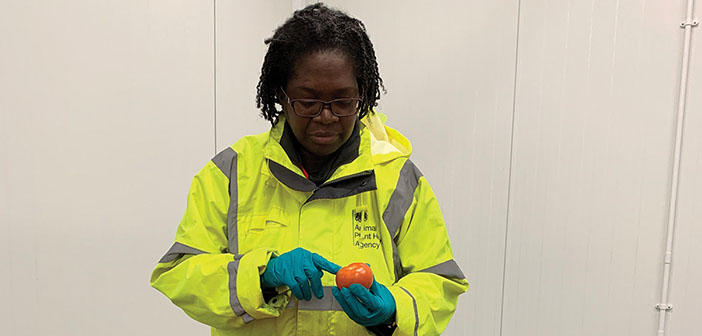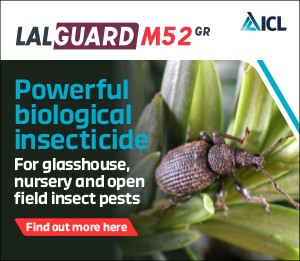Increasing the UK production of plants, produce and flowers over the next five years is one of the key elements of the government’s new biosecurity strategy, published in January, as it endeavours to reduce the chances of new pests and diseases arriving on imports.
The strategy aims to cut the risk and spread of pests and diseases on both plants and produce, in trade and in the environment.
Defra’s target for import substitution by boosting home production will be supported through the separate ‘horticulture strategy’, which it’s currently working on with industry representatives, and will help create a ‘biosecure plant supply chain’. ‘Government will continue to invest in our nurseries as they play a vital role in growing the high-quality plants that we need now more than ever before,’ it says.
The biosecurity strategy also outlines plans for improvements to plant health planning and regulations, awareness raising, and investment in the country’s plant health technical expertise.
It says biosecurity is a collective responsibility involving all in the supply chain, from growers and importers to retailers and landscapers, and so it’s essential that all plants are sourced from reputable suppliers with robust biosecurity practices. The strategy will see Defra and the Animal and Plant Health Agency (APHA) continuing to work with industry bodies including the NFU and HTA on initiatives such as the Plant Healthy assurance scheme. There will be scope within the inspection regime for ‘trusted trader’ recognition to reduce the regulatory burden for growers.
New biosecure procurement practices will be introduced for plant purchases under government contracts or those linked to government grants, and a new post-planting inspection regime implemented for high-risk imported trees.
There will be further revisions to the import regulation and inspection regime. Controls on personal imports from the EU and on goods carried by passengers arriving from the EU are being phased in, to align with controls on commercial trade. APHA is to expand its internet trading unit to increase monitoring and controls on online plant trading.
The UK’s plant health risk register will continue to be developed and there will be more ‘horizon scanning’ work to identify emerging pest and disease risks while new IT systems will help prepare for and manage outbreaks. The strategy also includes plans to increase investment in R&D on diagnosis and monitoring and on plant protection management practices.
The HTA said it welcomed the proposals for a more collaborative approach and particularly welcomed the idea of an awareness-raising programme aimed at the public. “The industry takes biosecurity very seriously and recognises that a biosecure supply chain is of critical importance,” said HTA director of public affairs, Jennifer Pheasey.
“We would highlight the need for comprehensive action on both undeclared plant imports and any e-commerce traders who are not operating securely, which pose a threat to British biosecurity, and to discuss further progressing an industry indemnity scheme.”














